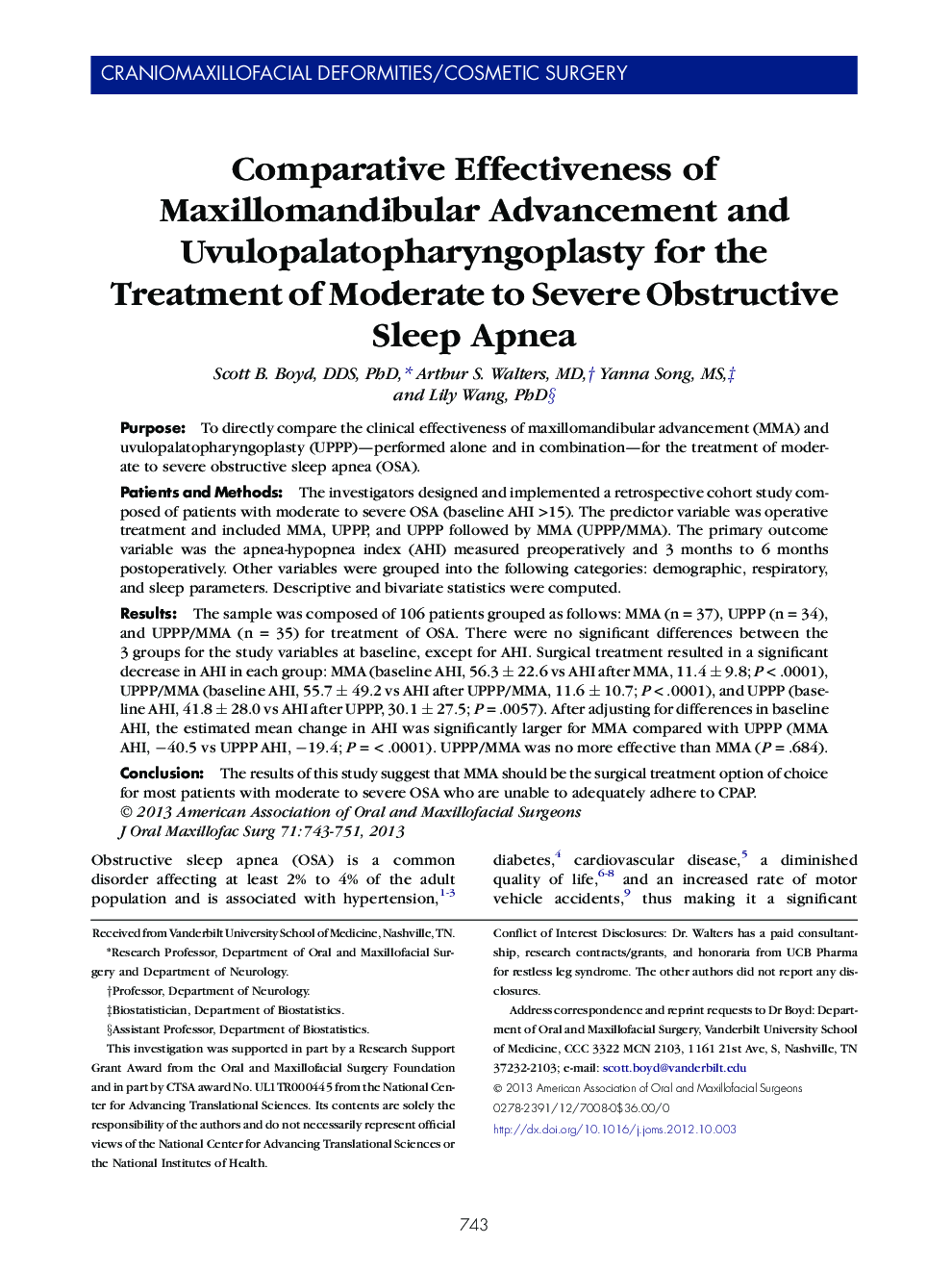| Article ID | Journal | Published Year | Pages | File Type |
|---|---|---|---|---|
| 3156575 | Journal of Oral and Maxillofacial Surgery | 2013 | 9 Pages |
PurposeTo directly compare the clinical effectiveness of maxillomandibular advancement (MMA) and uvulopalatopharyngoplasty (UPPP)—performed alone and in combination—for the treatment of moderate to severe obstructive sleep apnea (OSA).Patients and MethodsThe investigators designed and implemented a retrospective cohort study composed of patients with moderate to severe OSA (baseline AHI >15). The predictor variable was operative treatment and included MMA, UPPP, and UPPP followed by MMA (UPPP/MMA). The primary outcome variable was the apnea-hypopnea index (AHI) measured preoperatively and 3 months to 6 months postoperatively. Other variables were grouped into the following categories: demographic, respiratory, and sleep parameters. Descriptive and bivariate statistics were computed.ResultsThe sample was composed of 106 patients grouped as follows: MMA (n = 37), UPPP (n = 34), and UPPP/MMA (n = 35) for treatment of OSA. There were no significant differences between the 3 groups for the study variables at baseline, except for AHI. Surgical treatment resulted in a significant decrease in AHI in each group: MMA (baseline AHI, 56.3 ± 22.6 vs AHI after MMA, 11.4 ± 9.8; P < .0001), UPPP/MMA (baseline AHI, 55.7 ± 49.2 vs AHI after UPPP/MMA, 11.6 ± 10.7; P < .0001), and UPPP (baseline AHI, 41.8 ± 28.0 vs AHI after UPPP, 30.1 ± 27.5; P = .0057). After adjusting for differences in baseline AHI, the estimated mean change in AHI was significantly larger for MMA compared with UPPP (MMA AHI, −40.5 vs UPPP AHI, −19.4; P = < .0001). UPPP/MMA was no more effective than MMA (P = .684).ConclusionThe results of this study suggest that MMA should be the surgical treatment option of choice for most patients with moderate to severe OSA who are unable to adequately adhere to CPAP.
